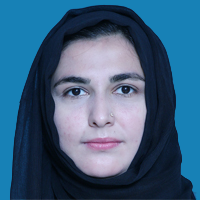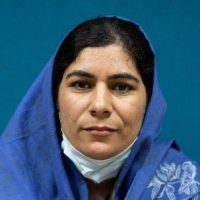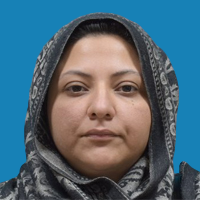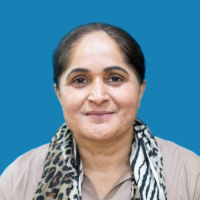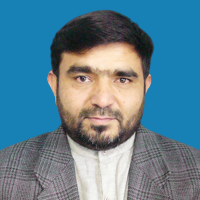| 1 | Y. Hussain, Abdullah, F. Khan, W. Alam, H. Sardar, M. A. Khan, X. Shen, and H. Khan, “Role of quercetin in DNA repair: Possible target to combat drug resistance in diabetes,” Current Drug Targets, vol. 25, no. 10, pp. 670–682, 2024. | 2024 |
| 2 | F. Khan and H. Qiu, “Amyloid-β: A potential mediator of aging-related vascular pathologies,” Vascular Pharmacology, vol. 152, p. 107213, 2023. | 2023 |
| 3 | K. Niaz, M. A. Nawaz, S. Pervez, U. Younas, I. Shah, and F. Khan, “Total scale analysis of organic acids and their role to mitigate Alzheimer’s disease,” South African Journal of Botany, vol. 144, pp. 437–447, 2022. | 2022 |
| 4 | Y. Hussain, H. Khan, G. Alotaibi, F. Khan, W. Alam, M. Aschner, P. Jeandet, and L. Saso, “How curcumin targets inflammatory mediators in diabetes: Therapeutic insights and possible solutions,” Molecules, vol. 27, no. 13, p. 4058, 2022. | 2022 |
| 5 | Y. Hussain, Abdullah, K. F. Alsharif, M. Aschner, A. Theyab, F. Khan, L. Saso, and H. Khan, “Therapeutic role of carotenoids in blood cancer: Mechanistic insights and therapeutic potential,” Nutrients, vol. 14, no. 9, p. 1949, 2022. | 2022 |
| 6 | H. Khan, T. Belwal, T. Efferth, A. A. Farooqi, A. Sanches-Silva, R. A. Vacca, S. F. Nabavi, F. Khan, H. Prasad Devkota, D. Barreca et al., “Targeting epigenetics in cancer: Therapeutic potential of flavonoids,” Critical reviews in food science and nutrition, vol. 61, no. 10, pp. 1616–1639, 2021. | 2021 |
| 7 | T. B. Tafesse, M. H. Bule, F. Khan, M. Abdollahi, and M. Amini, “Developing novel anticancer drugs for targeted populations: An update,” Current Pharmaceutical Design, vol. 27, no. 2, pp. 250–262, 2021. | 2021 |
| 8 | F. Khan, M. Hodjat, M. Rahimifard, M. N. Nigjeh, M. Azizi, M. Baeeri, Z. Bayrami, M. Gholami, S. Hassani, and M. Abdollahi, “Assessment of arsenic-induced modifications in the DNA methylation of insulin-related genes in rat pancreatic islets,” Ecotoxicology and environmental safety, vol. 201, p. 110802, 2020. | 2020 |
| 9 | M. Baeeri, M. Rahimifard, S. M. Daghighi, F. Khan, S. A. Salami, S. Moini-Nodeh, H. Haghi-Aminjan, Z. Bayrami, F. Rezaee, and M. Abdollahi, “Cannabinoids as anti-ROS in aged pancreatic islet cells,” Life sciences, vol. 256, p. 117969, 2020. | 2020 |
| 10 | T. Behl, S. Bungau, K. Kumar, G. Zengin, F. Khan, A. Kumar, R. Kaur, T. Venkatachalam, D. M. Tit, C. M. Vesa et al., “Pleotropic effects of polyphenols in cardiovascular system,” Biomedicine & Pharmacotherapy, vol. 130, p. 110714, 2020. | 2020 |
| 11 | F. I. Hassan, T. Didari, F. Khan, K. Niaz, M. Mojtahedzadeh, and M. Abdollahi, “A review on the protective effects of metformin in sepsis-induced organ failure,” Cell Journal (Yakhteh), vol. 21, no. 4, p. 363, 2020. | 2020 |
| 12 | M. Hodjat, F. Khan, and K. A. Saadat, “Epigenetic alterations in aging tooth and the reprogramming potential,” Ageing Research Reviews, vol. 63, p. 101140, 2020. | 2020 |
| 13 | F. Khan, S. Momtaz, and M. Abdollahi, “The relationship between mercury exposure and epigenetic alterations regarding human health, risk assessment and diagnostic strategies,” Journal of Trace Elements in Medicine and Biology, vol. 52, pp. 37–47, 2019. | 2019 |
| 14 | J. Fang, A. Sureda, A. S. Silva, F. Khan, S. Xu, and S. M. Nabavi, “Trends of tea in cardiovascular health and disease: A critical review,” Trends in Food Science & Technology, vol. 88, pp. 385–396, 2019. | 2019 |
| 15 | F. I. Hassan, T. Didari, F. Khan, M. Mojtahedzadeh, and M. Abdollahi, “The role of epigenetic alterations involved in sepsis: An overview,” Current Pharmaceutical Design, vol. 24, no. 24, pp. 2862–2869, 2018. | 2018 |
| 16 | S. Momtaz, S. Hassani, F. Khan, M. Ziaee, and M. Abdollahi, “Cinnamon, a promising prospect towards Alzheimer’s disease,” Pharmacological Research, vol. 130, pp. 241–258, 2018. | 2018 |
| 17 | F. I. Hassan, T. Didari, F. Khan, M. Mojtahedzadeh, and M. Abdollahi, “The role of epigenetic alterations involved in sepsis: An overview,” Current Pharmaceutical Design, vol. 24, no. 24, pp. 2862–2869, 2018. | 2018 |
| 18 | K. Niaz, F. Maqbool, F. Khan, F. I. Hassan, S. Momtaz, and M. Abdollahi, “Comparative occurrence of diabetes in canine, feline, and few wild animals and their association with pancreatic diseases and ketoacidosis with therapeutic approach,” Veterinary World, vol. 11, no. 4, p. 410, 2018. | 2018 |
| 19 | F. Khan, S. Momtaz, K. Niaz, F. I. Hassan, and M. Abdollahi, “Epigenetic mechanisms underlying the toxic effects associated with arsenic exposure and the development of diabetes,” Food and Chemical Toxicology, vol. 107, pp. 406–417, 2017. | 2017 |
| 20 | F. Khan, K. Niaz, F. Ismail Hassan, and M. Abdollahi, “An evidence-based review of the genotoxic and reproductive effects of sulfur mustard,” Archives of Toxicology, vol. 91, pp. 1143–1156, 2017. | 2017 |
| 21 | F. I. Hassan, K. Niaz, F. Khan, F. Maqbool, and M. Abdollahi, “The relation between rice consumption, arsenic contamination, and prevalence of diabetes in South Asia,” EXCLI Journal, vol. 16, p. 1132, 2017. | 2017 |
| 22 | M. Hodjat, S. Rahmani, F. Khan, K. Niaz, M. Navaei-Nigjeh, S. Mohammadi Nejad, and M. Abdollahi, “Environmental toxicants, incidence of degenerative diseases, and therapies from the epigenetic point of view,” Archives of Toxicology, vol. 91, pp. 2577–2597, 2017. | 2017 |
| 23 | B. Larijani, K. Niaz, A. Pourabbasi, F. Khan, J. Spoor, and M. Abdollahi, “Not only Iranian rise in science marred by fraud: Misconduct is a global problem,” EXCLI Journal, vol. 16, p. 1099, 2017. | 2017 |
| 24 | F. Maqbool, K. Niaz, F. I. Hassan, F. Khan, and M. Abdollahi, “Immunotoxicity of mercury: Pathological and toxicological effects,” Journal of Environmental Science and Health, Part C, vol. 35, no. 1, pp. 29–46, 2017. | 2017 |
| 25 | K. Niaz, F. I. Hassan, F. Maqbool, F. Khan, S. Momtaz, M. Baeeri, M. Navaei-Nigjeh, M. Rahimifard, and M. Abdollahi, “Effect of styrene exposure on plasma parameters, molecular mechanisms and gene expression in rat model islet cells,” Environmental Toxicology and Pharmacology, vol. 54, pp. 62–73, 2024. | 2024 |
| 26 | K. Niaz, F. Khan, F. Maqbool, S. Momtaz, F. I. Hassan, N. Nobakht-Haghighi, M. Rahimifard, and M. Abdollahi, “Endo-cannabinoids system and the toxicity of cannabinoids with a biotechnological approach,” EXCLI Journal, vol. 16, p. 688, 2017. | 2017 |
| 27 | F. I. Hassan, K. Niaz, F. Khan, F. Maqbool, and M. Abdollahi, “The relation between rice consumption, arsenic contamination, and prevalence of diabetes in South Asia,” EXCLI Journal, vol. 16, p. 1132, 2017. | 2017 |
| 28 | K. Niaz, F. Maqbool, F. Khan, H. Bahadar, F. I. Hassan, and M. Abdollahi, “Smokeless tobacco (paan and gutkha) consumption, prevalence, and contribution to oral cancer,” Epidemiology and Health, vol. 39, p. e2017009, 2017. | 2017 |
| 29 | F. Khan, K. Niaz, F. Maqbool, F. Ismail Hassan, M. Abdollahi, K. C. Nagulapalli Venkata, S. M. Nabavi, and A. Bishayee, “Molecular targets underlying the anticancer effects of quercetin: An update,” Nutrients, vol. 8, no. 9, p. 529, 2016. | 2016 |
































